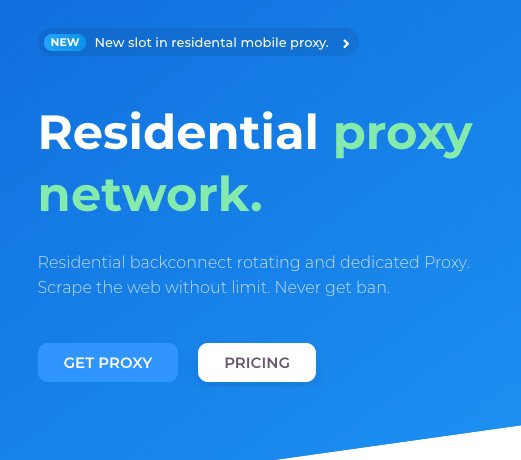WoW - Blizzard has reduced the number of servers
Blizzard Entertainment has announced that it plans to shut down some World of Warcraft servers. Populations of sparsely populated worlds have been...

The term "proxy" comes from English and in free translation means "intermediary". The term "proxy server" is also found on the Internet, which we will take a closer look at.
A proxy server, also known as an intermediary server, mediates the exchange of information between the user of a computer and a target server belonging to a hosting company. The main feature of a proxy server is that it requests access to network resources on our behalf, bypassing any blockade imposed on a given computer and not revealing the identity of the user.
Proxy servers are very often used by people who want to be anonymous on the Internet. This is because most proxy servers allow you to hide your IP address and leave your own address in the history of the servers you connect to.
When we connect to a proxy server, we select the address we are interested in on the network, and the browser first sends a query to the proxy server, which sends a request to access the site on our behalf. Proxy servers also have the ability to save visited pages in their memory. If the address you enter is in the server's memory, the page will be sent directly to our computer. However, if we have not visited the address before, the proxy will load the page, send it to us and, in the meantime, save a copy of the page in its memory.
There are three main types of proxy servers. They differ in their anonymity level. The first connection is called completely anonymous. In this case, all our data is protected and we do not send any information about the use of the server. The second type of connection is anonymous. When you connect via this type of server, our data is protected, but the website you are visiting gets an indication that you are using an intermediary server. The last type is a transparent connection. This only serves to speed up the loading of the website, as all our information, including the IP address, is made available to the website you are visiting.
A specific form of proxy servers is Tor and VPN. Their operation is similar to classic proxies, but they differ in many details and technical aspects.

Screen webpage: www.fusionproxy.com
On the Internet we can easily find websites offering free or paid access to proxy servers. If you decide to use one of them, it is worth checking the speed, access time and anonymity level of the server beforehand.
After obtaining the IP address and port of the server, we have to properly configure it in the application we want to use anonymously. Most often it will be a web browser. To do this, go to the Internet options of our system and in the "Connections" tab choose the "LAN settings" option. In the new window, enter the obtained IP address and proxy server port.
Advantages and disadvantages of using proxy servers
Advantages:
Using proxy servers we have the possibility to change the IP address, which allows us to use the Internet resources that are not available in the country from which we connect to the network.
Most proxy servers have very good data connections, so using the Internet can be much faster than your Internet connection would provide.
Proxies make Internet browsing more anonymous, hiding your identity to some extent. This makes it much more difficult to track the behaviour of a person using this form of protection. This advantage does not apply to transparent proxies.
Proxy servers allow you to block certain Internet addresses without any problems. This service is particularly useful in schools and workplaces.
Disadvantages:
Setting up a proxy server can be problematic. Each service (browser, email program, and other applications) requires a separate proxy configuration, and some applications do not support it at all. The most common proxies that support SOCKS and HTTP do not guarantee network security.
Blizzard Entertainment has announced that it plans to shut down some World of Warcraft servers. Populations of sparsely populated worlds have been...
The advantages of cloud computing in Poland have been noticed mainly by large companies. The value of our Cloud market is estimated at $200...
More and more people are using Internet television services. No wonder, because it gives you the opportunity to watch your favorite programs in...
The IT labour market in Poland is still attractive for foreign specialists, but the growing centres of outsourcing of IT services, e.g. in the...

Sed ut perspiciatis unde omnis iste natus error sit voluptatem accusantium doloremque laudantium, totam rem aperiam, eaque ipsa
